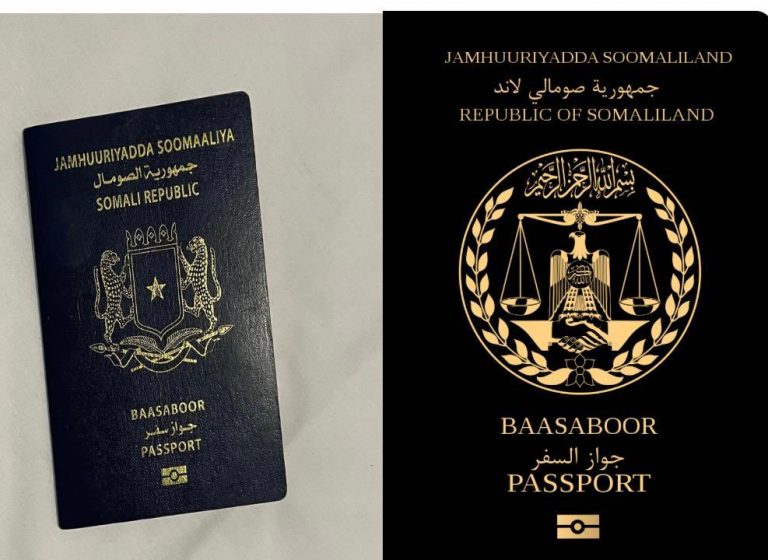
Opinion: Without Passport Privilege

According to the Henley Passport Index, Somali passport is among the weakest travel documents. A Somali passport can take you to 34 destinations on a visa on arrival, unlike someone from Japan or Singapore who can travel to 192 sovereign nations freely.
Traveling with a Somali passport can be mentally exhausting in many parts of the world. Living in a world where the nobility of your passport determines someone’s worth is unjust, creating layers of inequality.
I was born without passport privilege. While growing up, I had limited opportunities to travel around the world freely. Holding a Somali passport became my daily struggle as I tried to apply for visas. My anxiety doubles every time I apply for a visa because there is the possibility of being rejected. Additionally, the number of documents required during visa application can be nerve-wracking and expensive.
What is "Passport privilege”?
Simply, Passport privilege "is the ability to be able to travel throughout the world freely based on the passport you possess.”
In 2015, I traveled to the United States with my Somaliland passport. It was my first time traveling outside of the country. Although I have both the Somaliland and Somalia passports, both have limited privileges as the Somaliland passport is not accepted in many countries. Although Somaliland has maintained peace and democratic principles for the last thirty-one years, it remains to be a de facto state in the Horn of Africa and is considered to be part of Somalia. Somaliland travel documents have slowly gained international recognition from a few countries, including the United Arab Emirates, Rwanda, Ethiopia, the United Kingdom, and others.
When I received my student visa from the United States Embassy in Djibouti, my passport was never stamped. My visa was in an A-4 paper. When I arrived at Dulles International Airport, the security staff told me, "I can’t find this passport in our database, and your passport chip is not working.” After a long time of waiting and worrying, I was able to enter the country, and the arrival stamp was stamped on the A-4 paper. Holding a passport did not even matter as it did not exist in the international database.
After finishing high school in the
United States, I was accepted as a Mastercard scholar at the American
University of Beirut. Lebanon does not accept Somaliland passports. So, I
had to apply for a Somalia passport. I had no issues traveling to
Lebanon. However, in 2020, I had a Conference to attend in Ghana. So, I
traveled from Lebanon to Ghana through Turkish Airlines. I was in
transit for 5 hours in Turkey, and when it was time to check the
boarding passes, I was automatically stopped because of my passport. I
missed my flight. The airline staff told me, "I needed a visa to go to
Ghana. ” According to the Ghanaian immigration website, Somali passport
holders can get one-month access on arrival.
I was stuck at the Turkish airport for 20 hours, and some of their
staff were also rude to me. Later, they called the Ghanaian immigration
office in Accra, and I was allowed to travel to Ghana.

Traveling became a significant obstacle as I had to go through extra security checks and questions. Currently, I am studying at the University of Stirling MSc in International Conflict and Cooperation. I took an elective course called "Study Trip International Organizations” for the spring semester. And a few weeks ago, I traveled to Geneva due to course requirement duties. I told my department director the struggle you had to go through when applying for visas while holding a Somali passport. I told him I had to apply early since the visa process could take longer for citizens of certain countries, including Somalia, Afghanistan, Iraq, and more, according to the TLS website. Although I applied on time, my visa came late, and I was late for the conference. I missed my flight, and I had to book a new flight. I missed traveling with my classmates and professors. My travel journey started from Glasgow International Airport. When it was my time to check-in, the lady at the front desk atomically told me, "Sorry, this passport cannot take you anywhere.” I was shocked because she gave me a quick answer by the cover of my passport. And she gave me a document stating why the Somali passport does not have a "passport privilege,” basically. She did not even check if I had a Schengen visa. I told her I had a Schengen visa on my passport. And by that time, she was able to process my documents.
Passport privilege is an unjust and a form of discrimination. Many of my friends and people I know who are from Somaliland or Somalia are always trying to find ways they can secure other passports, including Ethiopian, Djiboutian, Kenyan, or other western passports, to escape this discriminatory and stereotypical system. However, securing passports from Ethiopians, Djibouti, and others cost a lot of money – $4000-$5000. Only a few Somalis can pay that, while the rest of the Somalis are forced to use their symbolic and non-existent passports. And it not only limits our freedom of movement to access opportunities but also stereotypes us as a monolithic entity threatening international security and peace.
Also, Passport privilege reinforces and monitors the concept of a border regime and border control, which is an arbitrary and discriminatory political
system. It limits freedom of movement across countries while double
restricting certain nationalities to travel worldwide, including to
their neighboring countries, without going through a lengthy application
visa process, bribery, and security checks.
By: Ubah Ali: MSc International Conflict & Cooperation @StirUni; Co-founder of @solaceGirls; Fellow @Resolutionproj; Alumna @AbaarsoSchool & @AUB_Lebanon; Among @BBC100women
Leave a comment
- Popular
- Rated
- Commented
04/11/2021 - 11:05:02
28/05/2024 - 15:44:10
01/03/2021 - 09:00:37
Opinions
18/05/2025 - 16:26:37
15/05/2025 - 20:16:04
Politics
05/06/2025 - 13:42:50
Terror Watch
07/06/2025 - 21:36:45
Press Releases
05/06/2025 - 12:21:21
02/06/2025 - 21:29:33
 0
0 




































Opinion: Without Passport Privilege
"This is the first time I have seen this passport," or "This passport cannot take you anywhere" are some of the comments I received from multiple airport staff during traveling.